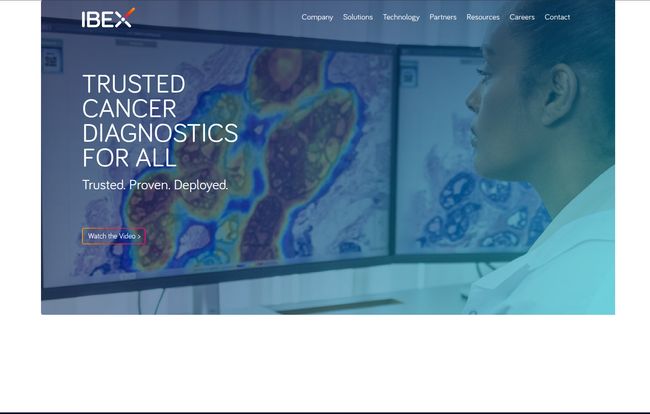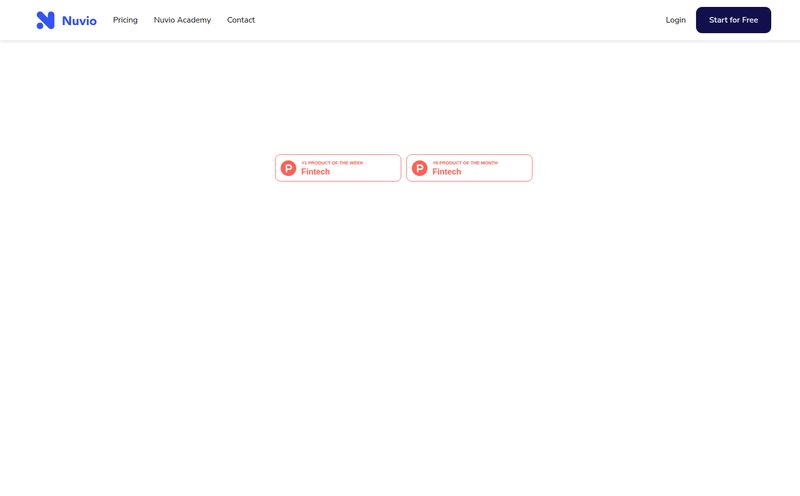I’ve been in the tech and traffic game for a long time. You see a lot of tools come and go, each one promising to be the next big thing, the “revolution” we’ve all been waiting for. Most of them are just noise. But every now and then, something comes along that makes you lean in a little closer. Something that isn’t just about optimizing clicks or boosting conversions, but about something... bigger.
That’s the feeling I got when I started looking into Ibex. We're not talking about a new social media scheduler here. We're talking about AI-powered diagnostics for cancer. Yeah, heavy stuff. The world of pathology is one of immense pressure and microscopic details. A single slide can hold a person’s entire future, and the pathologist is the one tasked with interpreting it. It's a field that demands incredible expertise and, frankly, nerves of steel.
So, the idea of bringing AI into this high-stakes environment is fascinating. Is it a helping hand, or just another complication? Let's get into it.
So What Exactly is Ibex?
At its heart, Ibex is an AI platform designed to act as a pathologist's assistant. Imagine having a second pair of eyes looking over your shoulder—eyes that have been trained on millions of tissue samples and never get tired or need a coffee break. That's the core idea. Ibex’s AI integrates with digital pathology systems to scan tissue slides, flagging suspicious areas and identifying hundreds of different diagnostic features. It's designed to find the needle in the haystack, so the human expert can focus their attention where it's needed most.
It’s not here to replace the pathologist. Let’s get that out of the way right now. I see it more like a super-powered co-pilot. The pilot is still flying the plane, making the critical decisions, but the co-pilot is handling complex calculations, monitoring systems, and pointing out things that might otherwise be missed during a long flight.

Visit Ibex
The Features That Actually Matter
Any software platform can throw a list of features on a landing page. But what actually moves the needle in a real-world clinical setting? From what I can see, Ibex focuses on a few powerful capabilities.
AI That Detects More Than Just the Obvious
The headline feature is, of course, AI-powered cancer detection. But it goes deeper. The platform can identify over a hundred different features—things like tumor grading, non-cancerous findings, and other subtle clues within the tissue. This isn't some beta-test algorithm; Ibex makes a point of saying its solutions are clinically proven and deployed in hospitals and labs worldwide. That's a huge trust signal in the medical field, where unproven tech is rightfully met with skepticism.
Making the Workflow, Well, Flow
Efficiency is a massive deal in any lab. The caseload for pathologists is not getting any smaller. Ibex helps by essentially triaging cases. The AI can pre-screen slides, allowing pathologists to prioritize the most urgent or complex ones. This means faster turnaround times, which for a patient waiting on a diagnosis, can feel like an eternity. It’s about working smarter, not just harder. The promise is to reduce the time spent on the straightforward cases to free up more brainpower for the truly challenging ones.
The Real-World Impact on Accuracy and Confidence
This is where the rubber meets the road. A faster workflow is great, but not at the expense of accuracy. The big win for a tool like Ibex is its potential to improve diagnostic accuracy and, just as importantly, a pathologist's confidence. Having an AI safety net that flags a tiny, easily-missed cluster of malignant cells can be the difference between an early-stage diagnosis and a missed opportunity. It's about catching subtle features that the human eye, after hours of staring down a microscope, might understandably overlook.
I’ve always felt that some of the best technology doesn’t just do a task for us, it makes us better at the task. It enhances our own abilities. From everything I’ve read from pathologists using the system, that seems to be the case here. It provides a level of reassurance that helps them make their final call with greater certainty. And that translates directly to better patient care.
But It's Not a Magic Bullet
Now, let's be real. No technology is perfect, especially one this advanced. There are some significant considerations to keep in mind.
The Integration and Cost Hurdle
You can’t just download Ibex and get started. This is enterprise-level medical technology. It requires a lab to have an existing digital pathology setup—the scanners and systems to create and manage digital slides. That’s a major investment in itself. Then there's the cost of Ibex itself. Like most companies in this space, they don’t list their pricing publicly. You’ll have to get a custom quote, and I’d wager it's not cheap. The argument, of course, is about ROI—calculating the value of increased efficiency and, more critically, reduced diagnostic errors. But the upfront cost and infrastructure requirements are a real barrier for many institutions.
The Over-Reliance Trap
There's a legitimate debate in the medical community about becoming too reliant on AI. What happens if a pathologist starts to blindly trust the AI's recommendations without doing their own due diligence? This is a valid concern. The key is framing. Ibex must be used as the tool it is—a powerful diagnostic aid, but not the final word. The pathologist’s expertise remains irreplaceable. It's a classic human-in-the-loop system, and maintaining that balance is absolutly critical.
The AI suggests, the pathologist decides. That has to be the mantra.
So, Who Is Ibex Actually For?
This isn't a tool for every clinic. Ibex is clearly aimed at larger hospital networks, high-volume pathology labs, and research centers that have already embraced or are ready to invest in a fully digital workflow. For those organizations, the potential to standardize quality, boost throughput, and provide a new layer of quality control is incredibly compelling. It’s for the forward-thinkers who see AI not as a threat, but as the next logical step in the evolution of medicine.
Frequently Asked Questions about Ibex AI
Is Ibex AI intended to replace pathologists?
Absolutely not. It's designed as an assistive tool to enhance the pathologist's work, improve efficiency, and act as a safety net. The final diagnosis and clinical decision-making authority remains firmly with the human expert.
What kinds of cancer can Ibex help detect?
Ibex has a strong focus on some of the most common cancer types. Their clinically-proven solutions include AI for breast, prostate, and gastric biopsies and resections. They are continually expanding their portfolio to cover more tissue types.
Is Ibex approved by regulatory bodies like the FDA?
Yes, and this is a major point of credibility. Ibex's Galen™ platform has received CE Mark in Europe for multiple applications and has also received FDA Breakthrough Device Designation in the U.S., which is intended to expedite the review of innovative technologies that can provide more effective treatment or diagnosis of life-threatening diseases.
How does Ibex fit into an existing lab workflow?
It's designed to integrate with a lab's existing systems. Ibex typically plugs into the Laboratory Information System (LIS) and works alongside the digital slide viewers that pathologists are already using, providing its insights directly within their normal environment.
What is the learning curve like for a pathologist to use Ibex?
While any new tool requires some onboarding, the goal is an intuitive user experience. Pathologists need to learn how to interpret the AI's findings and understand its strengths and limitations. However, because it integrates into existing software, it's designed to augment their workflow rather than completely overhaul it.
Final Thoughts on the Future
Look, the future of medicine is going to involve AI. That ship has sailed. The question is how we implement it thoughtfully and effectively. Ibex appears to be one of the companies leading that charge responsibly. By focusing on augmenting, rather than replacing, the expert, they’re building trust in a field where it is the most valuable currency.
It’s not a simple plug-and-play solution, and it comes with real costs and considerations. But for the right institution, the power of a clinically-validated AI co-pilot could be truly transformative—for pathologists, for labs, and most importantly, for patients waiting for an answer.
Reference and Sources
- Ibex Official Website
- FDA Breakthrough Devices Program Information
- An Overview of Digital Pathology - PathologyOutlines.com



